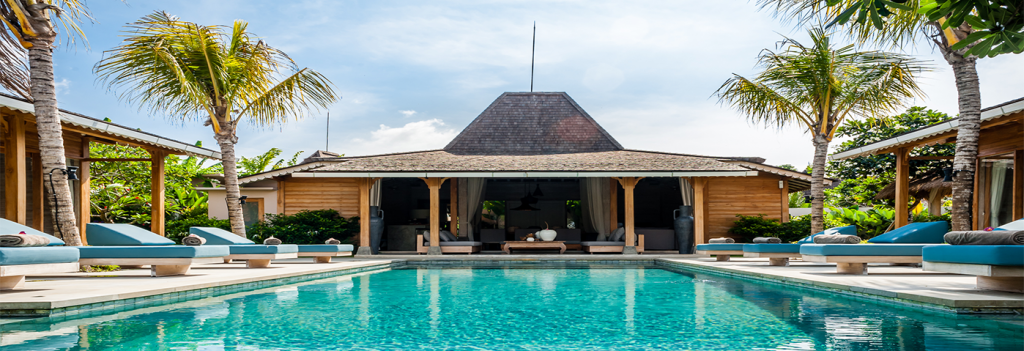While the vacation rental (VR) industry has a long history, it has mostly been limited to resort destinations. Recent disruption of new platforms, technology and the sharing economy bring drastic changes to the industry, as well as the global travel market. The VR market is predicted to reach $170 billion in 2019 with Europe and North America being the key regions.
How do hoteliers deal with the thrive of vacation rentals?
Not all hotels are affected the same
VRs have left several impacts on traditional hotel industry. However, the nature and scale of the impacts vary depending on the location, business model and type of travel.
Impact is not strong on business travel
Business travel is relatively not affected by VRs. An analyst report by UOB Kay Hian stated that VR’s potential impact on hotels might not be as worrying as many thought. With 50-60% of clientele coming from corporate business, hotels’ susceptibility to VR is lowered as these sites primarily cater to leisure trips by families and groups. However, this might change as VR companies have started to look into business travel. Airbnb, for example, is looking to capture this segment with Airbnb Business. One Fine Stay and Oasis also have a section for business travel on their websites.
VR expands the travel market
In cities like Paris, there are not enough hotel rooms to meet the travel demand. In this case, rather than cannibalising existing options, VR expands the markets. Travellers have a wider range of accommodations to fit their budget and requirements.
“Competition is good for all involved – it keeps providers on their toes so they innovate. Guests have more options and better choices. And cities benefit as they can accommodate more guests without having to build new hotels,” said Jochen Wirtz, Marketing Professor, National University of Singapore.
Hoteliers fight against VRs through legislation and lobbying
Many hoteliers view the ascendance of VR as a challenge for the traditional hospitality industry. The Singapore Hotel Association worries not only about the competition, but also safety and hygiene standards of VR properties. Others express concerns that renters on VR platforms such as Airbnb do not pay taxes nor have to comply with strict regulations hotels have to comply to.
In the US, the American Hotel and Lodging Association (AHLA) laid out a plan to counter the impact of Airbnb on the hospitality industry. The plan to combat AirBnB was a “multi-pronged, national campaign approach at the local, state and federal level,” including lobbying politicians and funding research. They also ran a testimonial campaign, ‘My Neighbourhood’ highlighting the negative impacts of illegal hotels. In total, AHLA has $5.6 million annual budget for regulatory work.
Hotels stay competitive by imitating VR: innovation and personalisation
Facing increased competition and changing customers’ demands, many traditional and on resorts have tried to stay on top of the game by adding more services and leveraging technology to offer guests a better experience, as stated in Hotels fight back.
In Singapore, several hotels such as W Singapore, Orchard Hotel, Hotel Vagabond, Pan Pacific Singapore and Dorsett Singapore provide guests with local mobile phones which can make free local calls and surf the internet. Singapore Marriott Tang Plaza Hotel has a mobile app which guests can use to check in and out of the hotel and communicate with the hotel staff to request services. In Cambodia, the Shinta Mani Club boutique hotel partner with tour operators to offer travel activities.
“The hotels can win part of the market back by providing more personalised and authentic experiences. But they may not be able to win back everyone, especially those who want a high degree of interaction with the host,” said Dr. Michael Chiam, Senior Tourism Lecturer, Ngee Ann Polytechnic.
Big hotel groups acquire VR companies
Rather than resisting VRs, some major hotels are also buying these companies to capture the market. In 2016, AccorHotels acquired 49% of Squarebreak, a French VR company. The group also acquired One Fine Stay for $170 million and is in negotiation to acquire 100% of Travel Keys, an Atlanta-based VR company, to solidify its position in the luxury home rental market.
In conclusion, the hospitality has given ambivalent reactions towards the rise of vacation rental companies like Airbnb. However, one thing that can’t be ignored is that vacation rental is a disrupting factor and is having a big impact on the hospitality industry.
Guest Author
David Chambat is the Founder and CEO of Villa Finder, an innovative platform for consumers to find and book a villa in Asia.
Villa Finder is the leading villa booking platform in Asia with 1,000+ villas in Bali, Sri Lanka, Mauritius, Phuket and Samui,
